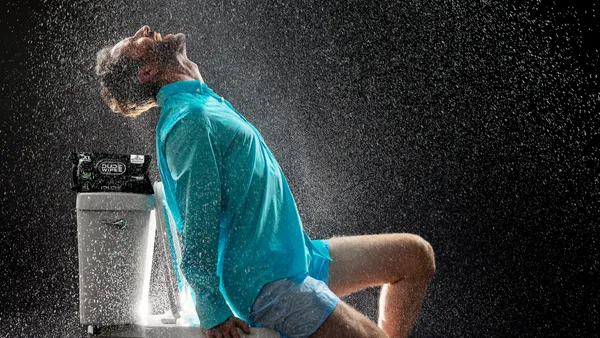Dive Brief:
- Consumers reward brands for breaking gender stereotypes with digital advertising, according to a consumer survey by self-service programmatic ad platform Choozle.
- Thirty-six percent of survey respondents said they liked a brand more when its ads went against stereotypes, and 25% said they'd be more likely to make a purchase from those brands. At the same time, 60% of people said colors and fonts in ads play a role in promoting gender stereotypes, and 75% said words do so, per the survey.
- Respondents offered mix opinions on whether it's the ad industry's responsibility to break stereotypes in their content, with 37% saying it is and 27% saying it's not. More than one-third didn't feel strongly either way.
Dive Insight:
While the study found that breaking gender stereotypes can be somewhat beneficial for brands, a plurality at 44% said they were not impacted by ads designed to do so — half of men and 38% of women.
Interestingly, personalization in digital advertising through using third-party data was cited as a reason for an increase in gender bias in digital ads, per the press release, which states that brands should acknowledge gender stereotypes and "strive to create an inclusive ad experience that meets the consumers' needs."
The U.K.'s Advertising Standards Authority banned gender stereotypes in advertising this summer, and a Facebook study from August outlines how focusing on positive messaging won't only earn brands a pat on the back from progressives — it could actually drive business results.
A number of brands have taken on trying to break down gender stereotypes, including P&G's "Like a Girl" award-winning campaign for its Always brand. In 2017, a few marketers have taken on male stereotypes, including Unilever and Lululemon.
Even though gender-positive messaging can be a winning tactic, it's never a guaranteed slam dunk, so marketers must tread carefully to not come off as tone deaf. A body wash packaging play by Dove from May, part of its long-running and otherwise successful "Real Beauty" campaign, was met with widespread backlash for drawing unflattering comparisons to women's figures.
Diversity is also a hot topic within the ad industry, with growing calls to end gender bias at award shows and findings from trade groups like 4A's highlighting just how homogenized marketing is both in its work culture and consumer-facing strategies.














